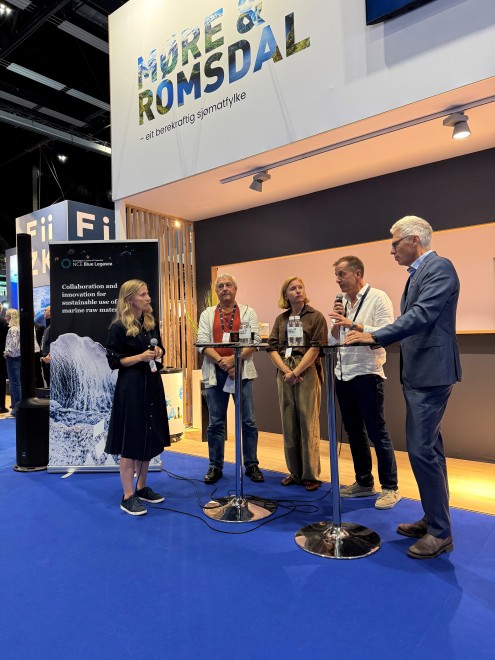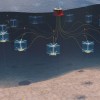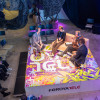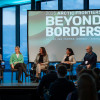Nordic Innovation has launched the results from a project exploring how floating wind power and offshore fish farming can coexist within the same marine areas to achieve a more efficient and sustainable use of the Nordic seas.
The results show that:
Co-location works in practice: Technically, it is feasible to co-locate offshore wind and aquaculture. Both sectors can benefit from shared infrastructure such as vessels, service operations, and monitoring systems.
Co-location has environmental benefits: Offshore locations often have deeper, cooler, and more oxygen-rich waters. This reduces the risk of sea lice, disease, and oxygen depletion which is some of the major challenges in today’s aquaculture. Less seabed impact also creates room for healthier ecosystems.
Co-location creates opportunities for both food and energy production: Co-location allows production of both food and energy in the same area, without increasing pressure on coastal zones strengthening food security and energy security at the same time.
Co-location can help reduce conflicts: By combining industries, we reduce spatial conflicts and make more efficient use of ocean resources.
Co-location has a socio-economic potential: Co-location can create new value chains, new jobs, and boost the competitiveness of Nordic businesses.
Read more about the results here
A window of opportunity for the Nordics
The results were presented by advisor from Nordic Innovation, Thordur Reynisson during the session, ‘Hvem eier havet? Samlokalisering i praksis’ at Aqua Nor in Trondheim. The new knowledge is a window of opportunity for the Nordics:
“The Nordics are uniquely positioned with world-class expertise in aquaculture and offshore wind, and a tradition of cross-border collaboration. This is an opportunity for the Nordics to invest in new industries, create new value chains and strengthen the competitiveness of Nordic businesses,” said Thordur Reynisson and continued:
“This is also a possibility for the Nordics to take global leadership in the sustainable development of the ocean. By demonstrating that food and energy can be produced together in harmony with ecosystems, we don’t just set a global standard, we also pave the way for the co-location of other industries at sea.”

Need for clear politics and predictability
Following the launch, a panel concluded that proper planning, mapping of the ocean, predictable politics and data sharing are key to achieving co-location of marine activities:
“If we want to use the ocean in a sustainable way in 20-30 years then we need proper planning with authorities having the overall responsibility. Co-location should also be a requirement to get a license,” said Karl Strømsen from Subfarm.
“Clear politics and predictability are necessary. Otherwise, no one is going to take the investment risk,” said Kristin Hellgreen from Freja Offshore.
“We need to know what is located where. We need a proper mapping of the ocean. Data sharing and the use of pilot projects to get knowledge are also important,” said Jan Henrik Sandberg from Norges Fiskarlag.
The results are a part of the project, OFFWOFF (Offshore Floating Wind and Offshore Fish Farms), which is developed in collaboration with the partners Subfarm, DHI, ÅKP, GCE Blue Maritime Cluster, Fyrbodals kommunalförbund and Freja Offshore.





